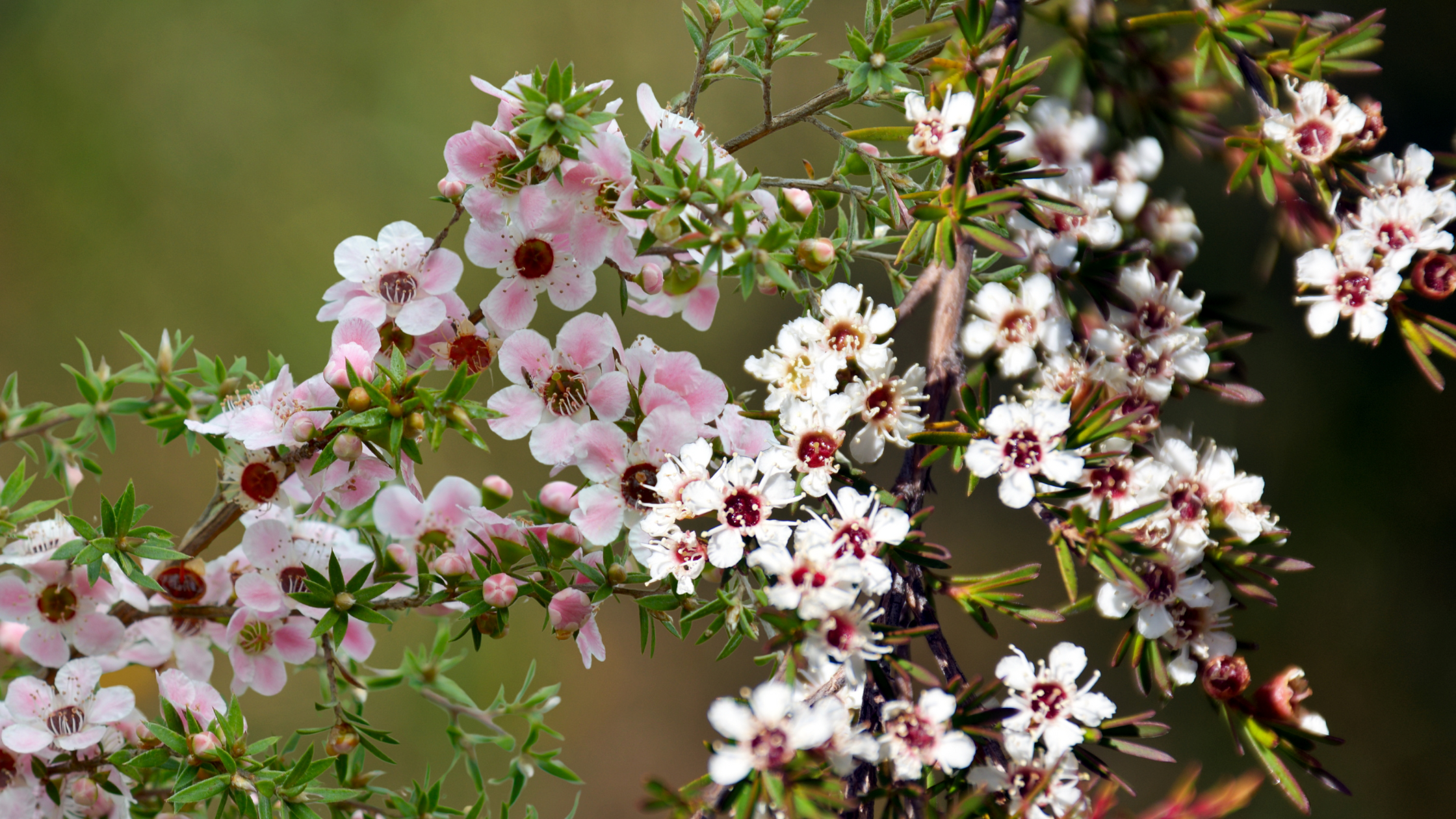Keep in Mind – Why This Matters
When you look at natural health products in New Zealand, you’ll see two names that show up over and over: Kanuka vs Manuka. These native shrubs have a long history in traditional Māori healing practices. They both grow delicate white flowers that attract bees. You’ll find them bottled, brewed, or mixed into various wellness products.
But here’s the twist — Kanuka vs Manuka aren’t identical, despite their similar looks. Their healing abilities, cultural applications, and even their flavours vary in intriguing ways (for example, in teas, honeys, and chutneys). Knowing these distinctions helps you pick the right one for your health, your skin, or even your kitchen.
At Atutahi, we love to share the knowledge of Aotearoa’s native plants. By understanding the contrast between these two famous herbs, you’ll learn about their cultural importance and how they can boost your wellbeing in different ways.
Exploring the Specifics
Origins and Identification
Manuka (Leptospermum scoparium) is known as New Zealand’s “tea tree”. Its flowers are smaller, and its leaves have short spines.
Kanuka (Kunzea ericoides) grows taller, often becoming elegant trees. Its flowers look fluffier and softer.
They seem almost the same to someone who doesn’t know better. Even experienced hikers sometimes can’t tell them apart — but one quick tip is that Mānuka leaves feel prickly, while Kānuka leaves are softer to the touch. But they differ in their botanical and medicinal properties.
Traditional Māori Uses
Māori healers have long recognised the mana (power) of both plants:
- People brewed Manuka leaves and bark into tea to treat colds, fevers, and upset stomachs. They used its oils to calm skin irritations.
- Kanuka, in contrast, earned praise for its milder properties. Folks made infusions from its leaves to soothe sore throats, help with relaxation, and quiet the body.
You can learn more about our values and respect for indigenous knowledge here: What We Value.
Modern Science
Manuka is well-known for its honey, which contains high levels of MGO (methylglyoxal). This compound has strong antibacterial effects, making the honey valuable in skincare and wound treatment.
Kanuka, though less marketed, is potent. Clinical studies indicate its oil can reduce inflammation and fight fungi, this makes it helpful to treat issues like acne, eczema, and even sore muscles.
Mānuka might grab all the attention, but Kānuka addresses a broad range of health needs.
Why This Matters to You
So why does the distinction matter? Because picking between Kānuka and Mānuka goes beyond names — it’s about selecting the right support to fit your body and lifestyle.
If you need a strong antibacterial agent, Mānuka honey or oil is your best bet. This explains why Mānuka has become a global wellness sensation.
If you seek a milder, comforting option, Kānuka fills that role. Its relaxing qualities make it ideal for skin applications, herbal teas, and gentle oils to help relieve stress and maintain daily equilibrium.
At Atutahi, we honour both. Our chutneys contain Kānuka, adding an earthy flavour depth, and our drinks blend Māori botanicals designed to invigorate and replenish. Every taste links you to Aotearoa’s natural wisdom.
Check out our selection here: Atutahi Products.
Bringing It Home
If you’ve wondered “Kanuka vs Manuka — which one tops the other?”, the answer is straightforward: neither surpasses the other, they just differ. Each boasts its own strengths, and both belong in your wellness journey.
Want to taste the unique flavours of New Zealand? botanical drinks, try chutneys with a native twist, or browse our gift packs that are great to share.
When you buy from Atutahi, you’re not just boosting your health — you’re backing a brand that values Māori culture, eco-friendly practices, and the protection of native plants.
Buy Atutahi products now to bring Kānuka and Mānuka’s natural powers into your everyday routine.
Frequently Asked Questions
Mānuka has a reputation for its honey and strong antibacterial properties, whereas Kānuka is milder, helping skin health, relaxation, and general wellbeing.
Yes. Mānuka has a more intense earthy flavour, often called medicinal, while Kānuka tastes lighter and more delicate.
Both benefit the skin, but Kanuka oil stands out as calming for acne, eczema, and inflammation.
No. Both plants produce honey, but Manuka honey has high MGO levels, which makes it valuable for its antibacterial properties.
Yes! Our Kanuka Beetroot Chutney offers a tasty way to enjoy this native herb.
Yes. Māori used both Kanuka and Manuka in rongoā Māori (traditional medicine) for hundreds of years.
For antibacterial power, pick Manuka. For mild, soothing help, Kanuka fits the bill.
